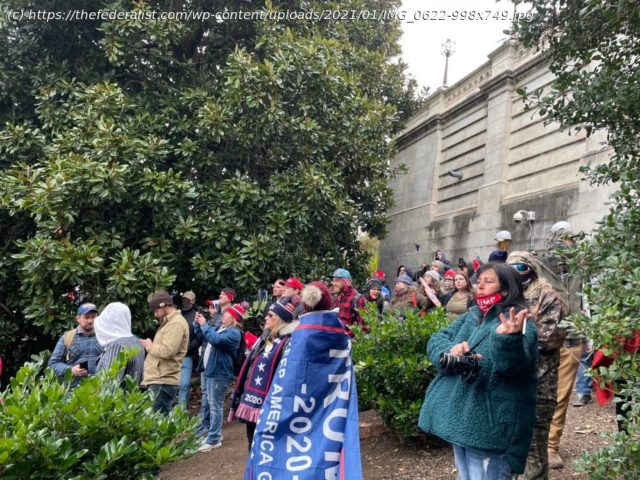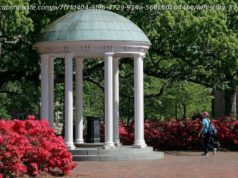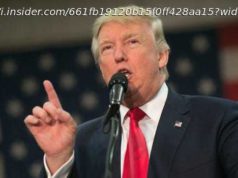The deadly riot at the U.S. Capitol bore the markings of an organized operation planned well in advance of the Jan. 6 joint session of Congress.
The deadly riot at the U.S. Capitol bore the markings of an organized operation planned well in advance of the Jan.6 joint session of Congress. A small number of cadre appeared to use the cover of a huge rally to stage its attack. Before it began, I saw from my vantage point on the West Front of the Capitol what appeared to be four separate cells or units: All of these cells or groups stood out from the very large crowd by their behavior and overall demeanor. However, they did not all appear at the same time. Not until the very end did it appear there was a prearranged plan to storm the Capitol building, and to manipulate the unsuspecting crowd as cover and as a follow-on force. This article is a first-person, eyewitness account drafted the night of Jan.6 and morning of Jan.7, so it is not affected by other news coverage or information. The only research aids used in this article were photos and videos that I took from my phone. I have witnessed and participated in scores of protests since the 1970s when as a high school student I was trained by professional agitators from California. Apart from my professional background and experience, nothing in this article is derived from any third-party information or analysis. In editing this for publication, I fought the temptation to add new information that I had subsequently learned from my own or from other people’s accounts. Other reports will vary and may contain contradicting information, and will contain far more facts than appear here. Many well-known actions and developments reported in the news do not appear here, as this is purely what I saw and understood between about 11:30 a.m. and 4:00 p.m. on Jan.6. Originally I had planned not to attend any of the several pro-Trump events scheduled for that day. At the last minute, a companion and I decided to see what we could see. Late that morning, at about 11:30, I walked from near Union Station to the Senate side of Capitol Hill on 2nd and D Streets NW and noticed a small number of Capitol Police dressed in full riot gear, with shin guards and shoulder guards. One carried a black baton with side handle. “That’s old school,” I called to the officer, giving him a thumbs-up. The police appeared to be readying to board a van or bus, although the Capitol was only 2-1/2 blocks away. I crossed behind the Russell Senate Office Building to Constitution Avenue near the Capitol, past some out-of-towners who pointed at the Capitol and asked if it was the White House, then walked for about 25 minutes up Pennsylvania Avenue toward an empty Freedom Park. A rally had just taken place there and moved to the Ellipse, the large lawn between the White House and Constitution Avenue NW. President Trump was speaking to a huge crowd at the Ellipse, although the Freedom Park rally had broken up to assemble at the Capitol before we arrived. For such a massive event, police presence was light. District of Columbia police and a small group of DC National Guard had a relaxed demeanor, keeping a professional distance from marchers and other pedestrians, as they usually do. A few police and National Guard gathered around a mobile device to listen to the president make what sounded like rousing comments. A while later we saw from a block away that marchers had begun down Constitution Avenue from the Ellipse to Capitol Hill, mostly along Constitution Avenue. We passed down 13th Street to join them. Although the march was in protest of fraud in the 2020 election and people were recounting the president’s energizing speech, the mood of the crowd was positive and festive. Strangers stopped to talk to one another along the way, resisting but ultimately giving in to offers from street vendors hawking Trump and MAGA memorabilia, or to taking pictures of Washington landmarks. Some along the way talked enthusiastically about President Trump joining them on Capitol Hill, as if he had said something about it in his Ellipse speech. I didn’t want to pop their balloon by saying that he undoubtedly would not. There was an expectation in the air that he would be there. Of the thousands of people I passed or who passed me along Constitution Avenue, some were indignant and contemptuous of Congress, but not one appeared angry or incited to riot. Many of the marchers were families with small children; many were elderly, overweight, or just plain tired or frail—traits not typically attributed to the riot-prone. Some said they were police officers from around the country. Many wore pro-police shirts or carried pro-police “Back the Blue” flags. Among the hundreds and hundreds of flags—perhaps thousands—displayed over the next few hours, I saw only two Confederate battle flags and one white supremacist sign, the latter of which some suspected aloud was a leftist plant. The two flags and one sign, I thought, would feature prominently in news reports to present a false image of the crowd. A large group of African-American men sported shirts that said “Blacks for Trump.” Figuring that journalists would emphasize the solitary racist sign and Confederate flags, deliberately ignoring the rest, I took note of the fact that many demonstrators were black, Asian, and Latino, with a strong presence of Vietnamese- and Chinese-Americans. The DC government had placed only one portable toilet along the 16-block Constitution Avenue route, and five more near the intersection with Pennsylvania Avenue near the Canadian Embassy. The federal government opened the Ronald Reagan Building so people could use the bathrooms. The city had provided few trash bins. (DC usually provides a large number of toilets and trash receptacles along march routes.) Yet remarkably little litter could be seen in the streets. People crushed their plastic water bottles and food wrappers and stuffed them in their pockets, and a few marchers picked up the occasional trash along the route. Observations about the toilets and trash are noteworthy because, in my experience with and among large protest crowds in Washington, the large leftist crowds tend to be angry and leave trash in the streets and urine in the shrubs. None of that anger showed in the Jan.6 crowd along Constitution Avenue. Although the crowd represented a broad cross-section of Americans, mostly working-class by their appearance and manner of speech, some people stood out. A very few didn’t share the jovial, friendly, earnest demeanor of the great majority. Some obviously didn’t fit in. Among them were younger twentysomethings wearing new Trump or MAGA hats, often with the visor in the back, showing no enthusiasm and either looking at the ground, glowering, or holding out their phones with outstretched arms to make videos of as many faces as possible in the crowd. Some appeared awkward, the way someone’s body language inadvertently shows the world that he feel like he doesn’t fit in. A few seemed to be nursing a deep, churning rage. They generally covered their faces with cloth masks, as opposed to the pro-Trump people, few of whom wore masks at all. They walked, often hands in pockets, in clusters of perhaps four to six with at least one of them frequently looking behind. These outliers group looked like trouble. I presumed these fake Trump protesters were Antifa or something similar. However, that entire afternoon I saw none of them act aggressively or cause any problems. At least, not from my vantage point. A second outlier group also stood out. While many marchers wore military camouflage shirts, jackets, or pants of various patterns and states of wear and in all shapes and sizes, here and there one would see people of a different type: Wiry young men in good physical condition dressed neatly in what looked like newer camouflage uniforms with black gear, subdued patches including Punisher skulls, and helmets. They showed tidiness and discipline. They strode instead of walked, moving at a more rapid pace than most of the people, sometimes breaking into a short jog, and generally keeping to the left side of Constitution Avenue in pairs of two or small groups of three. Unlike others in old military clothes who tended to be affable and talkative, these sullen men seemed not to speak to anyone at all. As we would see, they were the disciplined, uniformed column of attackers.






